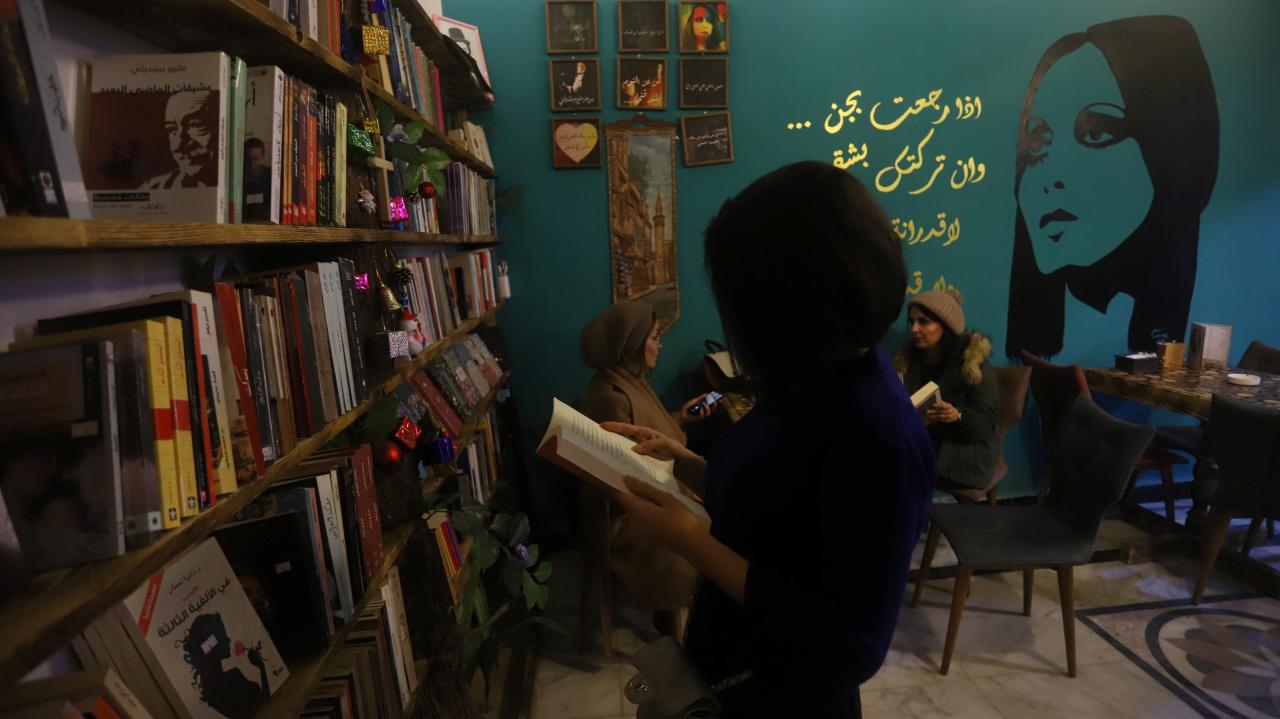
BASRA, Iraq (Reuters) – Mohammed Abdul Ameer’s nostalgia for better days and his roots in the Levant were what inspired him to open Basra’s first mixed-gender cafe since the rule of Saddam Hussein, and themed in honor of the Lebanese singer Fairouz.
The southern Iraqi city, the home of Abdul Ameer’s father, has since Saddam was toppled in a 2003 US invasion seen conflict, unrest, religious conservatism and an acute lack of jobs and services.
Abdul Ameer hopes his customers, mostly young Iraqis, can temporarily forget that and lose themselves in the Arab literature stacked on bookshelves at his cafe while they drink coffee out of cups imprinted with Fairouz’s face.
“Fairouz songs are associated with good memories. This place will bring people back to the past, to better days,” the owner said at his new Fairouz Cafe and Bookshop in central Basra.
“We learned Fairouz’s songs during school days so we associate her name with nostalgia.” Mugs picturing Fairouz, whose soothing voice emanates from car radios in Iraqi cities and throughout the Arab world, are also sold at the cafe.
The 29-year-old grew up in his mother’s homeland of Syria but fled for Basra in 2012 near the beginning of the Syrian civil war.
The conflict, which began more than seven years ago with protests against President Bashar al-Assad, has killed hundreds of thousands and driven millions from their homes.
“Life in Syria became tough. Snipers and kidnappings became common. I decided to leave and find a new life in Basra,” said Abdul Ameer.
Conservative city
The economics graduate’s dream project – to open a cafe that emulates the Damascus cafe culture – has come to fruition, and many locals are delighted.
“What I love about this place is the library and the good service. This place is quiet and free from people who try to restrict our freedom,” said Samana Sajjad, a 23-year-old woman who works as a local radio presenter.
“After a long day, it’s a place where you can forget your worries by listening to Fairouz and reading a book.”
Located where the Euphrates and Tigris rivers merge near the Gulf, Basra was for centuries a melting pot of Arabs, Persians, Turks, Indians and Greeks who left their cultural imprint.
After Saddam was toppled, conservative Shi’ite-led parties took power in Basra, bringing with them a religiously restrictive lifestyle.
Young people in Basra took part in protests in September which turned violent, complaining of unemployment, lack of services and corruption.
Basra’s oil fields bring in the vast majority of Iraq’s oil wealth but the city suffers from power and water shortages like much of the country.
Iraq’s population is predominantly Shi’ite Muslim, and much of its society in the south is conservative, with many women wearing the black head-to-toe abaya and public mixed-gender socializing often frowned upon.
Writing by Ahmed Rasheed; Editing by John Davison




